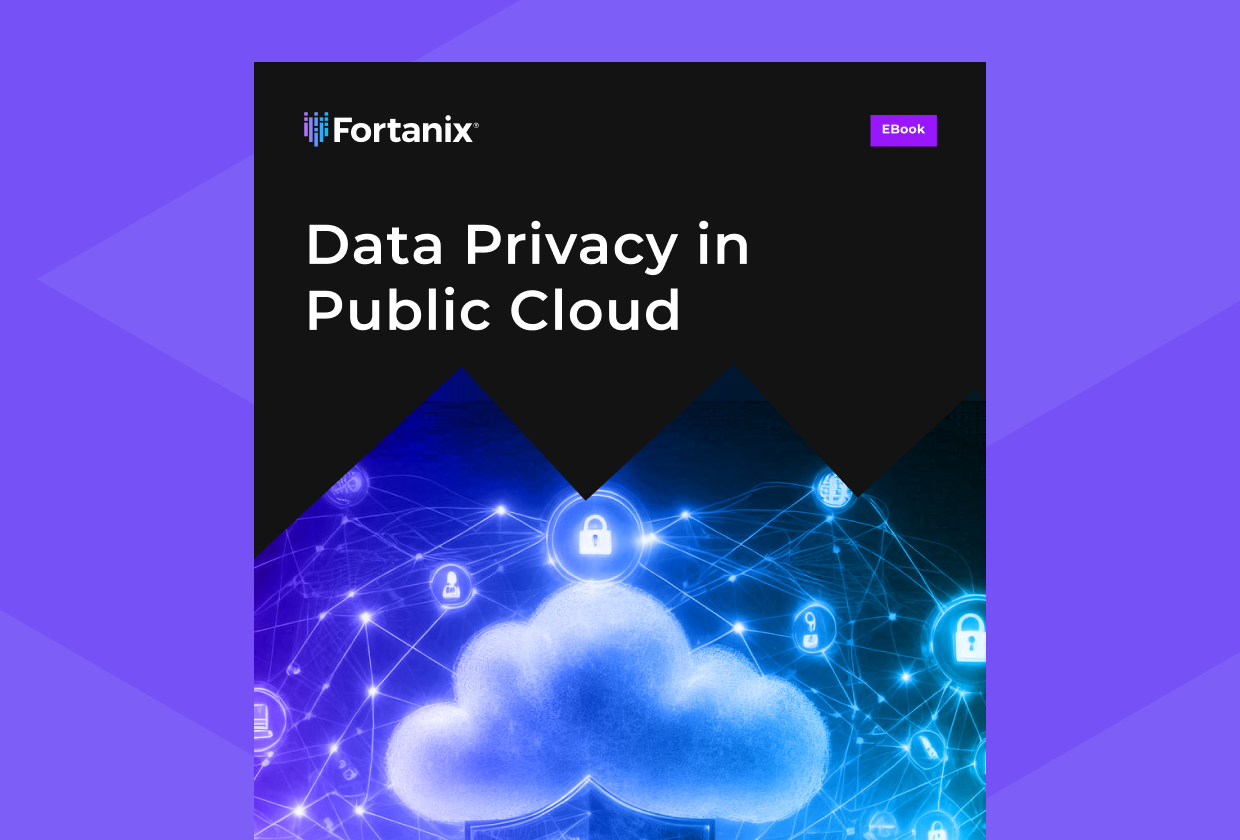Overview
What is HIPAA?
The Health Insurance Portability and Accountability Act (HIPAA) establishes strict privacy and security standards for protecting sensitive protected health information (PHI). Organizations in healthcare—and any third parties handling PHI—must implement robust security and data handling practices to comply with HIPAA.
HIPAA defines who can access health data and limits how and when it can be shared. As PHI moves across hybrid multicloud environments, maintaining HIPAA compliance becomes more challenging. Yet non-compliance is not an option.

How Fortanix Helps
Fortanix delivers essential data security capabilities through a unified platform. It enables organizations to identify at-risk services, prioritize remediation efforts, and safeguard sensitive data across all layers and systems—both on-premises and in the cloud.

Cryptographic Posture Management
Manage assets and vulnerabilities by discovering, assessing, and remediating your encryption key security gaps. Get powerful insights into your cryptographic security posture across multi-cloud and on-prem environments for a complete inventory and visibility.

Data Security Platform
Protect your information systems with data encryption across databases, virtual machines, filesystems, and multi-cloud for complete security and compliance without performance loss and at scale. With data tokenization in place, replace sensitive data to prevent data exposure while putting it work.

Encryption Key Management
Meet cybersecurity requirements for cryptography with centralized and simplified key lifecycle management for the hybrid multicloud, through a single-pane-of-glass. Store keys in natively integrated FIPS 140-2 level 3 certified HSM, available on-premises or SaaS.

Secure AppDev
Enforce secure code standards across the storage, control and management of secrets, credentials, certificates, API keys, and tokens from a centralized solution with enterprise-grade controls. Cryptographically sign code to verify the authenticity and integrity of applications, ensuring they are not altered or corrupted.

Zero Trust Architecture
Implement essential cybersecurity controls with granular Role-Based Access Controls and other advanced operational and security features. Ensure that only authorized users can access encryption keys or see decrypted data for a specified duration of the business case.
Featured Resource
EBook: Data Privacy in Public Cloud
Resources

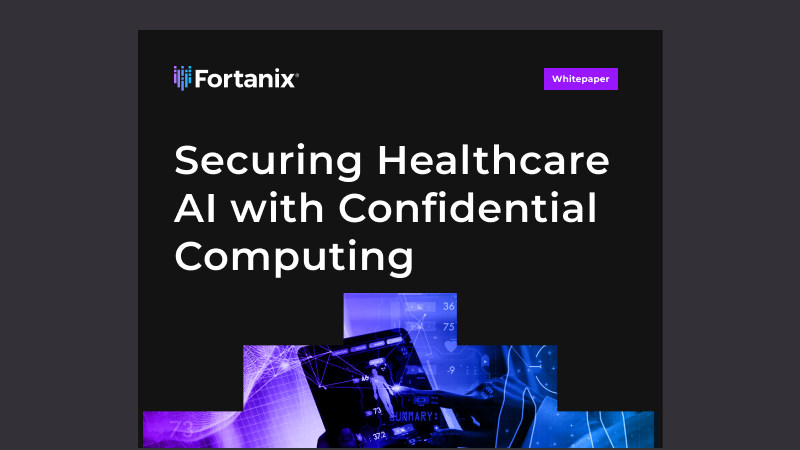

Case Study
BeeKeeperAI Accelerates Healthcare AI and Enables Secure Healthcare Data Collaboration with Fortanix Confidential Computing

Case Study
TGen Secures Genome Data for Richer Healthcare AI Models with Fortanix Confidential Computing
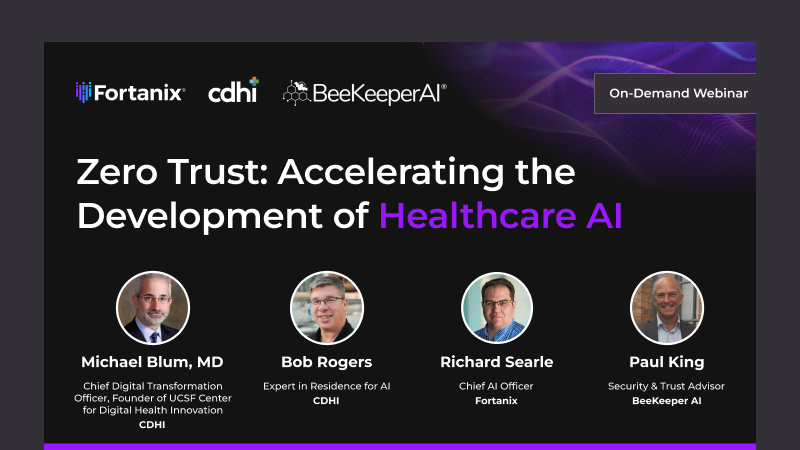

Case Study
Fortanix Confidential Computing Manager Enables Secure Data Exchange Platform for a Healthcare Customer
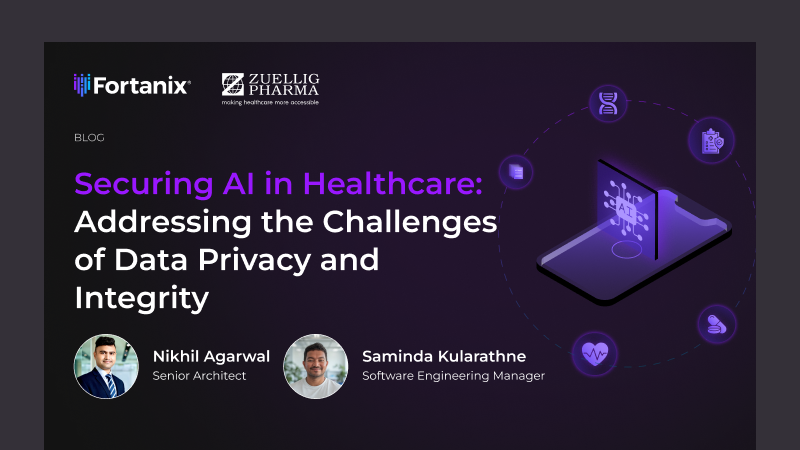
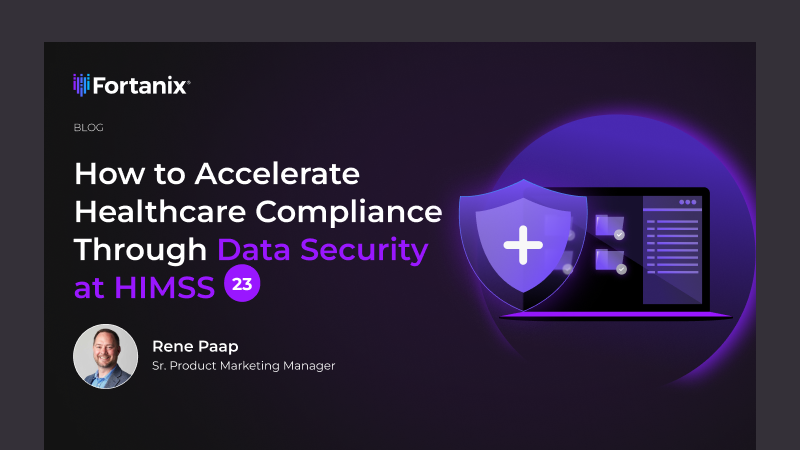
Blog
Fortanix Shows How to Accelerate Healthcare Compliance Through Data Security at HIMSS 23




